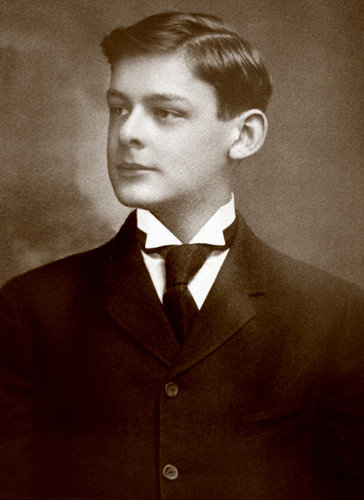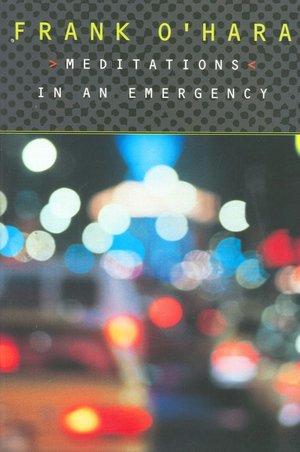The 1944 Broadway musical “On the Town” brought together the composer Leonard Bernstein and the team of Betty Comden and Adolph Green, who wrote the book and lyrics. The show follows the adventures of three sailors on 24-hours of shore leave in New York.
In Act I, one of the sailors, the serious-minded Gabey, expresses his rapture at suddenly finding love. The song he sings is “Lucky to Be Me“:
I used to think it might be fun to be
Anyone else but me.
I thought that it would be a pleasant surprise
To wake up as a couple of other guys.
But now that I’ve found you,
I’ve changed my point of view,
And now I wouldn’t give a dime to be
Anyone else but me.
What a day,
Fortune smiled and came my way,
Bringing love I never thought I’d see,
I’m so lucky to be me.
What a night,
Suddenly you came in sight,
Looking just the way I’d hoped you’d be,
I’m so lucky to be me.
I am simply thunderstruck
At the change in my luck:
Knew at once I wanted you,
Never dreamed you’d want me, too.
I’m so proud
You chose me from all the crowd,
There’s no other guy I’d rather be,
I could laugh out loud,
I’m so lucky to be me.
Now, you’d be right to say the song’s romantic formula — a woebegone fellow looking for redemptive love finds it smack dab in front of him — has been used so often as to be, by now, a cliché. But there’s something about the song’s lyrics, some quality that makes it work.
So let’s back up a minute.
Suppose it was your task is to write a jaunty update of this old tale of a lucky turn of fortune, this love-walks-in cliché. Suppose you’re expected to write something that fits within the tongue-in-cheek style of the show while also paying respect to tradition. From whom, among your betters, would you respectfully borrow? What ur-text would you reference?
A possible answer hit me a few days ago, and it may be the very same answer Comden & Green came upon seventy years ago.
I think the guy Comden & Green latched onto was the father of durable clichés: Shakespeare. My guess for the text they referenced?
When in disgrace with Fortune and men’s eyes,
I all alone beweep my outcast state,
And trouble deaf heaven with my bootless cries,
And look upon myself and curse my fate,
Wishing me like to one more rich in hope,
Featured like him, like him with friends possess’d,
Desiring this man’s art, and that man’s scope,
With what I most enjoy contented least.
Yet in these thoughts myself almost despising,
Haply I think on thee, and then my state,
Like to the lark at break of day arising
From sullen earth, sings hymns at heaven’s gate;
For thy sweet love remember’d such wealth brings
That then I scorn to change my state with kings.
You don’t have to strain to see parallels. Both sonnet and song are emotional exclamations and both foreground a man whose depression lifts with the appearance of a loved one. Yet the affinities go beyond subject matter. The path of Gabey’s and the sonnet writer’s stories charts the same course. The same cues appear. All of this is described with synonymous language.
To begin, Comden & Green’s twentieth-century American notion of fate and destiny is of course entirely different than that of Elizabethan England. Yet notice how crucially the word “fortune” is used in both instances. Though separated in time, there is the same initial yearning to be “anyone else but me,” the distressed wish to be “like him” over there or “like him” over there — and, then again, like this man, like that man. We see that the “couple of guys” mentioned by Comden & Green are a summary of what may have been twice that number in Shakespeare.
The emotional “turn” (“Haply I think on thee”) that Shakespeare withholds until the two-thirds of the way through the sonnet is something Comden & Green choose to reveal partially in the introduction (“I’ve found you”) and then with fuller detail as to the circumstances further along (“Suddenly you came in sight”). A different pace and placement of the revellation is understandable, as the lyricists’ audience would demand more lavish attention be paid to the emotional payoff (Sing to me at length, repeatedly, about how you feel now!) than does the reader of the sonnet. The quiet reader is content to learn that the speaker feels like singing at heaven’s gate — and demands no demonstration thereof.
Both song and sonnet close with the identical lesson learned: When I’m in love, there’s no other guy I’d rather be. I wouldn’t change my lot for a king’s fortune. I scorn alternatives. In my state of joy I just want to laugh out loud.
How daunting it is to stand before Shakespeare and his verbal mastery. How could anyone — even word wizards like Comden & Green — not desire that man’s art, that man’s scope? Back to the task at hand, the solution was to stand with Shakespeare or, let’s say, to borrow a little from the guy. To form an informal trio of Comden & Green & Shakespeare.
OK. I’ve got no proof of my hypothesis. But, pace Google, I did find an interview Betty Comden granted in 2004 that offers some interesting leads. Here she reflects on her early education and drama apprenticeship:
I understand that you attended a special program at New York University in the Department of Dramatic Arts. What were your studies like at NYU, and how did they influence your later work?
Oh, well, it was an interesting school. I was there all four years, and we mainly studied the classics—Shakespeare, a lot of Shakespeare—so it was a dramatic group at the college. Not in regular classes, but they did performances every evening in the school auditorium, and so I saw a lot of Shakespeare. But a lot. And it was a great education; I’m glad of it. I recommend it to anyone.
What were the Washington Square Players?
Oh, well that’s the group I was just mentioning that played mostly Shakespeare and some Sheridan. Let’s see, what else? It really was mostly the Shakespeare plays.
While “Lucky to Be Me” is mostly all Comden & Green, it takes nothing away from their accomplishment to say they learned to play well with Shakespeare.
.


